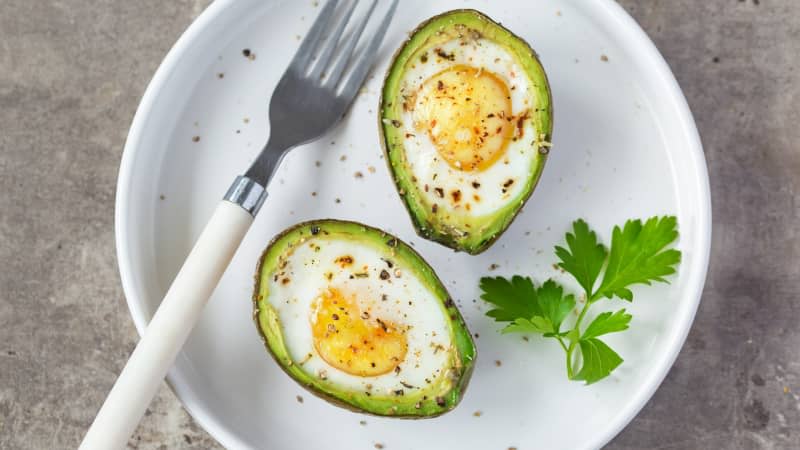
The Difference Between Pasture Raised and Omega-3 Eggs
A decade ago, you only had two choices: organic or conventional eggs. But in the last few years, quite a few varieties of eggs have cropped up at your local grocery store. Now, you need to choose from organic, cage-free, free-range, pasture raised and omega-3. If you’re not familiar with pasture raised and omega-3 eggs, here’s what you need to know.
Pasture-Raised Eggs
These types of eggs come from chickens allowed to roam on pastures and eat plants, insects and feed. Compared to conventional eggs, pasture raised eggs are:
- Higher in Vitamin A, E and omega-3 fatty acids
- Lower in cholesterol and saturated fat
Consuming Vitamin A helps:
- Protect eyes from night blindness and other eye-related conditions
- Decrease the risk of certain cancers
- Support the immune system
- Reduce the risk of acne
- Support bone health
- Promote healthy reproduction
The health benefits of Vitamin E include:
- Extra protection from cigarette smoking, air pollution, and UV rays
- Protecting cells from damage and promote longer cell life
Omega-3 Eggs
Omega-3 eggs come from chickens whose feed has been supplemented with omega-3 sources, such as flaxseed. These chickens may have some access to the outdoors. Compared to conventional eggs, omega-3 eggs have:
- 39% less arachidonic acid, an inflammatory omega-6 fatty acid
- Five times as much omega-3 fatty acids
Consuming a diet rich in omega-3 fatty acids can help:
- Improve symptoms of depression, anxiety and other mental disorders
- Improve skin, eye, bone and joint health
- Promote brain health during pregnancy and early life
- Reduce the risk of heart disease
- Reduce symptoms of ADHD and asthma in children
- Reduce symptoms of metabolic syndrome
- Reduce inflammation
- Fight autoimmune disease
- Decrease age-related mental decline and Alzheimer’s disease
- Decrease the risk of certain cancers
- Reduce fat in the liver
- Alleviate menstrual pain
- Improve sleep
The Chino Valley Ranchers Difference
Chino Valley Ranchers’ pasture raised hens are free to roam outdoors and eat whatever they find in the dirt, such as grass, seeds, bugs and worms. Each hen has 108 square feet and is never locked up in a cage.
Chino Valley Ranchers Omega-3 eggs come from hens fed a special diet rich in flaxseed. Each omega-3 egg contains 225 mg of Omega-3, also known as alpha-linolenic acid (ALA).
The next time you’re out grocery shopping, pick up a carton of Chino Valley Ranchers eggs and feel good about your healthy food choice.